23 October 2014
2014 Annual Conference Report
Andrew Sentance
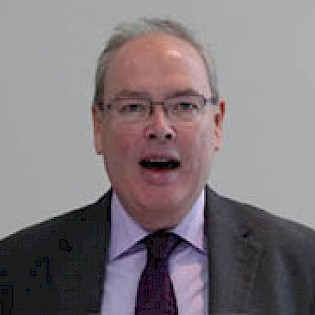
Andrew’s focus was on the tripling of nominal global GDP over the last 20 years thanks in part to inflation outstripping real GDP growth during all but one year since the onset of the financial crisis. Evan, however, began by noting that normality had yet to be restored seven years on from the start of the crisis.
This could be due to a number of reasons: a) rebasing to lower expectations (or the ‘new normal’ as Andrew has often described it), b) the possibility that the policy response has been insufficient to get growth back on track, c) the risk of secular stagnation (demand deficiency) and d) the risk that what we are seeing is a supply problem and weaker potential growth.
Ben Broadbent
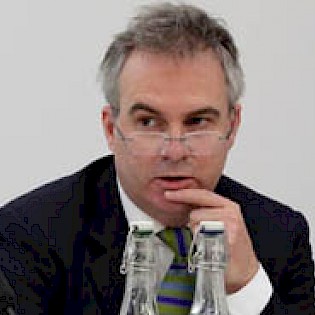
His argument was that central banks had accommodated the downward trend in the natural rate of interest rather than monetary policy having caused lower rates globally. Had central banks not done so, then policy would have been too tight, GDP and inflation too low, and unemployment too high. Moreover, he said it was not clear that central banks had pushed long-term risk-free (i.e. sovereign) rates lower and that lower natural rates were primarily due to global disturbances such as rising savings and shifts in relative risk premia.
In a wide-ranging speech Dr Broadbent also examined the reasons that relative returns on equities & bonds began diverging from 2001, and considered the sizable inequality of wealth across - and even within - age cohorts.
Robert Chote

As a % of GDP it appeared the deterioration in the UK’s budget deficit had been largely due to higher spending than lower receipts, but in cash terms receipts were clearly structurally weaker post-crisis. Since 2008 most of the fiscal consolidation had come from spending as opposed to tax rises, without which the deficit would have been materially worse. And it is the massive cuts proposed in day-to-day (current) spending that will continue to erode the deficit going forward - assuming the OBR’s forecasts for steady growth and inflation at target materialise.
The coalition’s deficit reduction plan has been expanded both in scope and time-frame, with disappointing budget outcomes due to weak nominal GDP/productivity/earnings, high inflation, and a sizable hit to the financial sector. Mr Chote argued that a key decision for future governments would be whether to continue to protect large areas of key public spending such as health & education.
Gavyn Davies
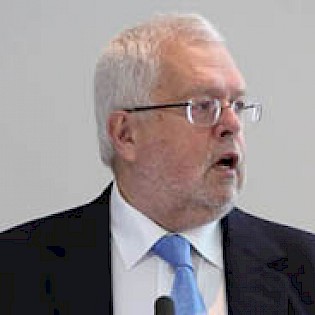
Mr Davies was not as pessimistic on Europe as some commentators, arguing that ECB policy support (and a falling euro as a result) should prevent a prolonged period of deflation. Still, he argued that the ECB’s plans to restore its balance sheet to 2012 levels did not look that impressive alongside Japan’s monetary expansion. Downward revisions to consensus growth forecasts had been largely concentrated in emerging markets as economists were waking up to the idea that excessively strong growth (in China, for example) is a thing of the past.
‘Nowcasting’ suggests current growth in the US and UK of around 4% yoy, far outpacing that of the euro area at just 0.5%. Apparent signs of a slowing in the UK are hardly surprising given its exposure to continental Europe. In the US, Mr Davies was concerned about the fall in the participation rate and high numbers of part-time workers - both of which suggested spare capacity in the labour market and a continuation of loose monetary policy for some time to come.
Stephanie Flanders
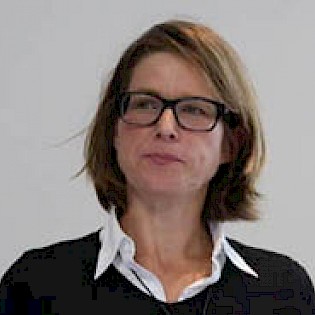
Stephanie Flanders, JP Morgan’s Chief Market Strategist for Europe, was the next to speak and began by looking at the IMF’s recent downward revisions to growth in Europe and the BRICs - but not the US.
The biggest change affecting market sentiment of late (which was described as a ‘slight overreaction’) had been the fall in inflation expectations, though it was argued that global inflation outside of Europe did not look that low - echoing Dr Sentance’s opening remarks. Surprisingly, the largest fall in inflation expectations had been in the US rather than Europe, perhaps thanks to the combination of falling commodity prices and a rising dollar.
As for Europe, much of the fall in actual inflation was related to food and energy, which helped explain the fact that consumption had not lost momentum in the single currency bloc. Ms Flanders was generally optimistic about improving confidence, the upcoming stress tests drawing a line under financial sector concerns in Europe, and better credit conditions. Though with structural reforms having been postponed this risked suppressing demand going forward.
Low interest rates are here to stay for some time, it was argued, as central banks try their best to grow their economies in nominal terms out of debt.
Jeffrey Currie
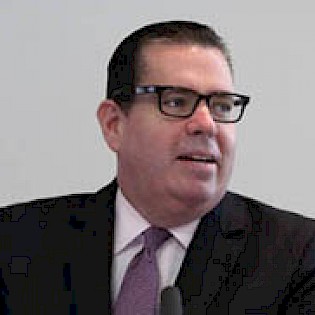
Our final speaker of the day was Jeffrey Currie, Head of Commodities Research at Goldman Sachs.
He began by noting his surprise at the recent sharp fall in oil prices given the lack of any evidence pointing to a supply glut, but argued that despite this apparent large move volatility was low relative to the past. The reasons for this were threefold: a) central banks being ‘systematic sellers of volatility’, b) demand for oil having switched versus the past, with the US now ‘baseload’ demand and emerging markets the ‘margin of adjustment’, and c) the supply curve getting flatter.
Mr Currie spent some time examining supply, in particular shale extraction which had not only reduced the price of oil (the cost was fairly flat at USD80pb almost irrespective of output) but also helped clean up the US’s environmental credentials. The ‘shale revolution cycle’ was described as follows: it lowers energy prices, which leads to more US growth and less accommodative monetary policy.
That reduces EM demand, raising the supply of commodities and consequently US growth which in turn feeds back into a continuation of the shale revolution - and so the circular process continues.
However, a lot of money has been spent on developing the technology to access shale oil and Mr Currie argues that demand is more limited than supply in the US - they can get it out of the ground but don’t know what to do with it - precisely the opposite of China’s predicament.
With thanks
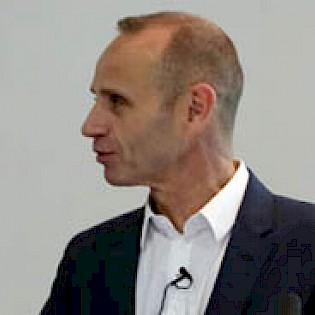
With thanks to a fabulous line-up of speakers, Evan for chairing once again, Andrew/PwC for generous sponsorship and to all attendees.
We hope you enjoyed the conference and look forward to seeing you again at next year’s event!
Remember there are many more SBE seminars before then, with George Magnus next up speaking after our AGM on 24 November.


